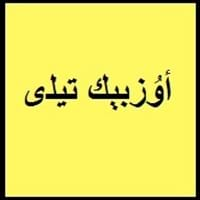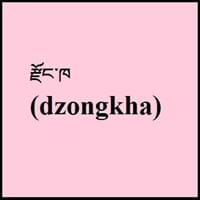Uzbek and Dzongkha
Countries
Turkey, Uzbekistan
Bhutan
National Language
Afganistan, China, Kazakhstan, Kyrgyzstan, Russia, Tajikistan, Turkmenistan, Uzbekistan
Bhutan
Second Language
Not spoken in any of the countries
India
Speaking Continents
Middle East
Asia
Minority Language
Not spoken in any of the countries
India
Regulated By
Not Available
Dzongkha Development Commission
Interesting Facts
- Uzbek is officially written in the Latin script, but many people still use Cyrillic script.
- In Uzbek language, there are many loanwords from Russian, Arabic and Persian.
- Standard romanization of the Dzongkha language is Roman Dzongkha.
Similar To
Kazakh and Uyghur Languages
Sikkimese Language
Derived From
Not Available
Tibetan Language
Alphabets in
Uzbek-Alphabets.jpg#200
Dzongkha-Alphabets.jpg#200
Scripts
Arabic, Cyrillic, Latin
Dzongkha Braille, Tibetan Braille
Writing Direction
Not Available
Not Available
Language Levels
Not Available
Time Taken to Learn
Not Available
Hello
Salom
Kuzoozangpo La
Thank You
Rakhmat
Kaadinchhey La
How Are You?
Qalay siz?
Ga Day Bay Zhu Yoe Ga ?
Good Night
Hayirli tun
lek shom ay zim
Good Evening
Hayirli kech
Not Available
Good Afternoon
Hayirli kun
Not Available
Good Morning
Hayirli tong
Not Available
Please
Iltimos
Not Available
Sorry
Kechiring!
Tsip maza
I Love You
Sizni sevaman
Nga cheu lu ga
Excuse Me
Iltimos! Menga qarang
Tsip maza
Where They Speak
Not Available
Bhutan
How Many People Speak
Not Available
Where They Speak
Not Available
Bhutan
How Many People Speak
Not Available
Where They Speak
Not Available
Bhutan
Total No. Of Dialects
Not Available
Speaking Population
Not Available
Second Language Speakers
Not Available
Native Name
أۇزبېك ﺗﻴﻠی o'zbek tili ўзбек тили (o‘zbek tili)
རྫོང་ཁ (dzongkha)
Alternative Names
Annamese, Ching, Gin, Jing, Kinh, Viet
Bhotia of Bhutan, Bhotia of Dukpa, Bhutanese, Drukha, Drukke, Dukpa, Jonkha, Rdzongkha, Zongkhar
French Name
ouszbek
dzongkha
German Name
Usbekisch
Dzongkha
Pronunciation
Not Available
Not available
Ethnicity
Uzbek
Ngalop people
Origin
9th–12th centuries AD
17th Century
Language Family
Turkic Family
Sino-Tibetan Family
Subgroup
Turkic
Not Available
Branch
Southestern(Chagatai)
Tibeto-Burman
Early Forms
Chagatay
No early forms
Standard Forms
Uzbek
Dzongkha
Language Position
Not Available
Signed Forms
Not Available
Not Available
Scope
Macrolanguage
Individual
ISO 639 6
Not Available
Not Available
Glottocode
uzbe1247
nucl1307
Linguasphere
No data available
No data Available
Language Type
Living
Living
Language Linguistic Typology
Not Available
Not Available
Language Morphological Typology
Not Available
Not Available
All Uzbek and Dzongkha Dialects
Most languages have dialects where each dialect differ from other dialect with respect to grammar and vocabulary. Here you will get to know all Uzbek and Dzongkha dialects. Various dialects of Uzbek and Dzongkha language differ in their pronunciations and words. Dialects of Uzbek are spoken in different Uzbek Speaking Countries whereas Dzongkha Dialects are spoken in different Dzongkha speaking countries. Also the number of people speaking Uzbek vs Dzongkha Dialects varies from few thousands to many millions. Some of the Uzbek dialects include: Tashkent, Afghan. Dzongkha dialects include: Laya , Lunana. Also learn about dialects in South American Languages and North American Languages.
Uzbek and Dzongkha Speaking population
Uzbek and Dzongkha speaking population is one of the factors based on which Uzbek and Dzongkha languages can be compared. The total count of Uzbek and Dzongkha Speaking population in percentage is also given. The percentage of people speaking Uzbek language is 0.39 % whereas the percentage of people speaking Dzongkha language is Not Available. When we compare the speaking population of any two languages we get to know which of two languages is more popular. Find more details about how many people speak Uzbek and Dzongkha on Uzbek vs Dzongkha where you will get native speakers, speaking population in percentage and native names.
Uzbek and Dzongkha Language Codes
Uzbek and Dzongkha language codes are used in those applications where using language names are tedious. Uzbek and Dzongkha Language Codes include all the international language codes, glottocodes and linguasphere.





